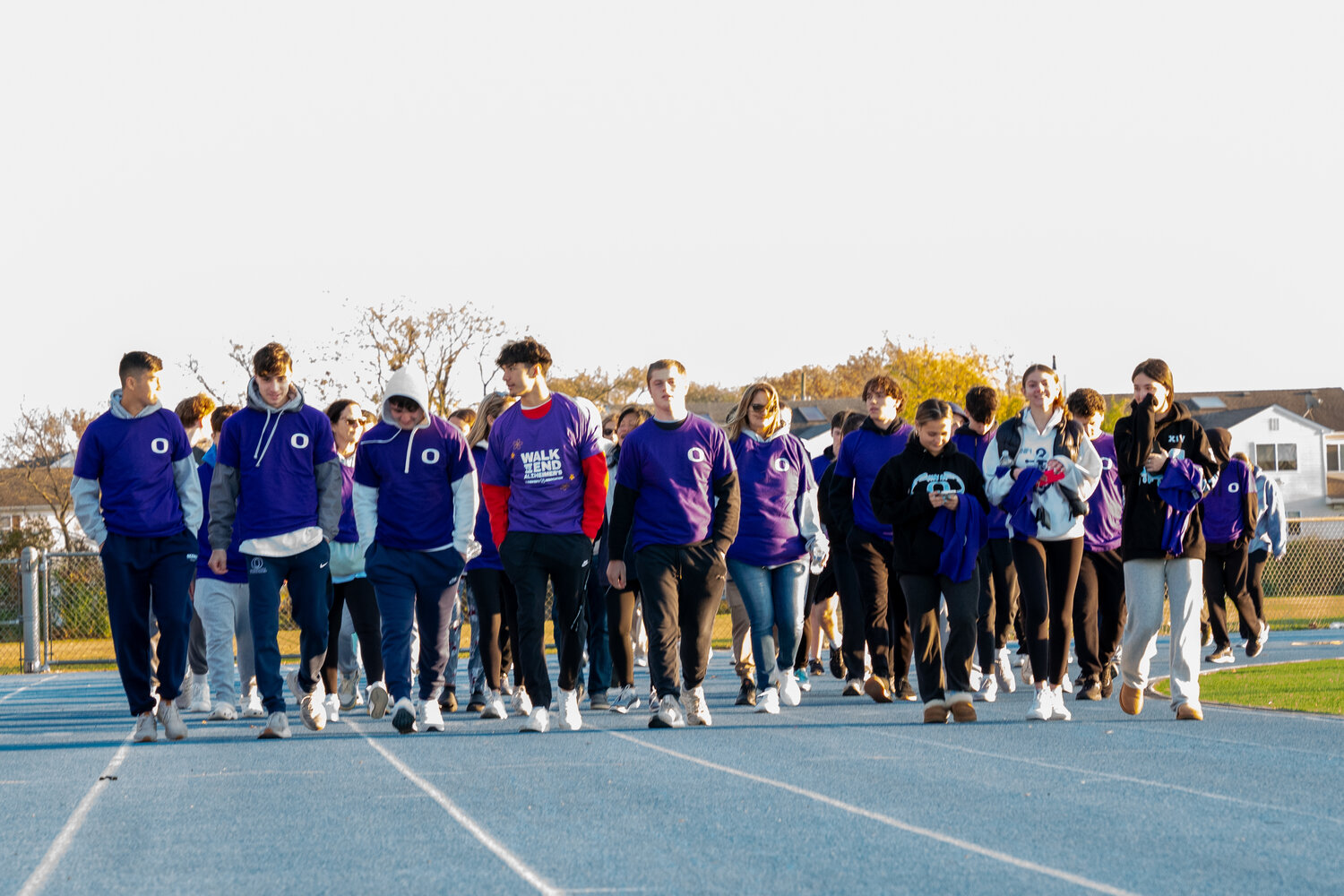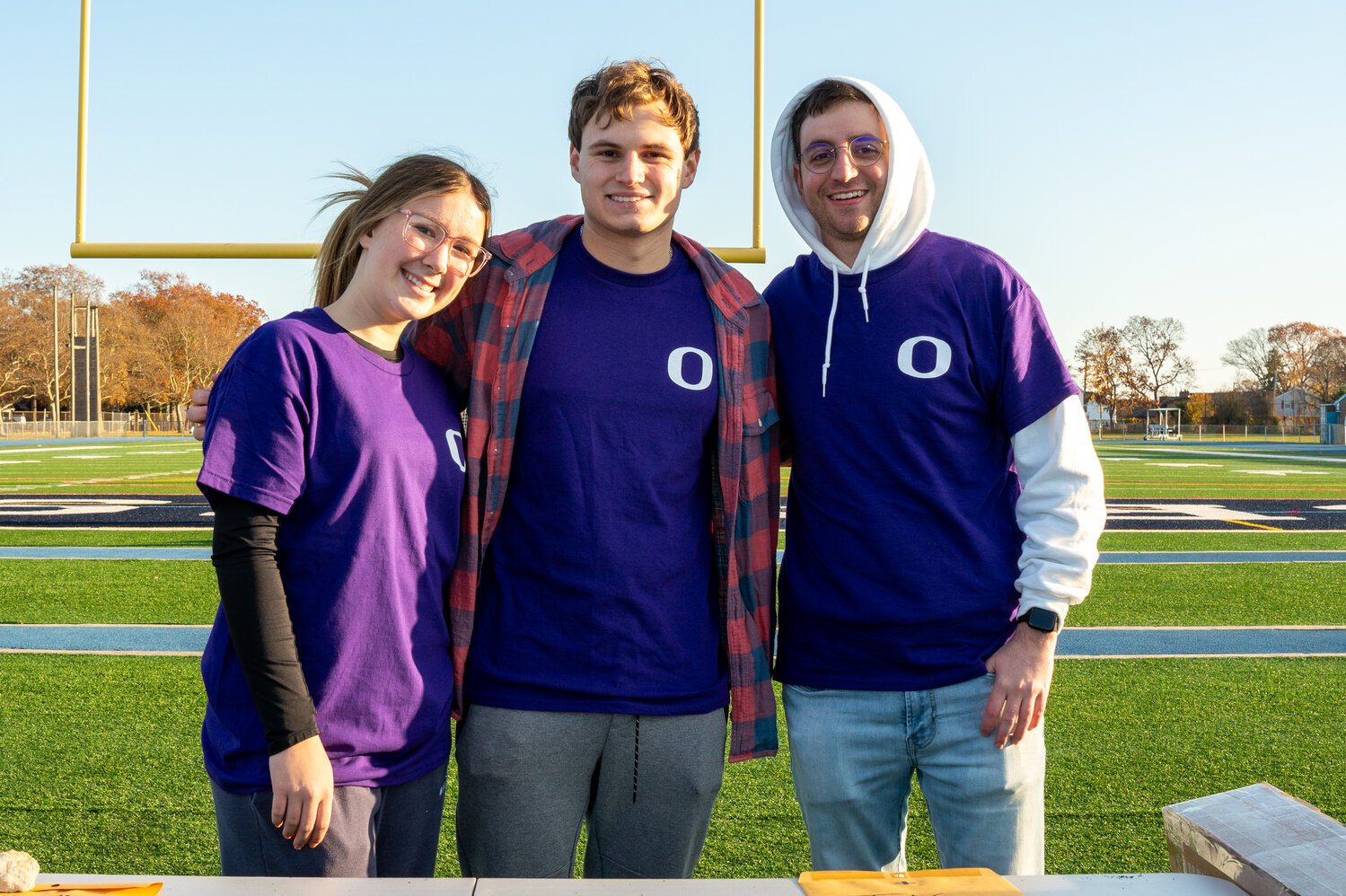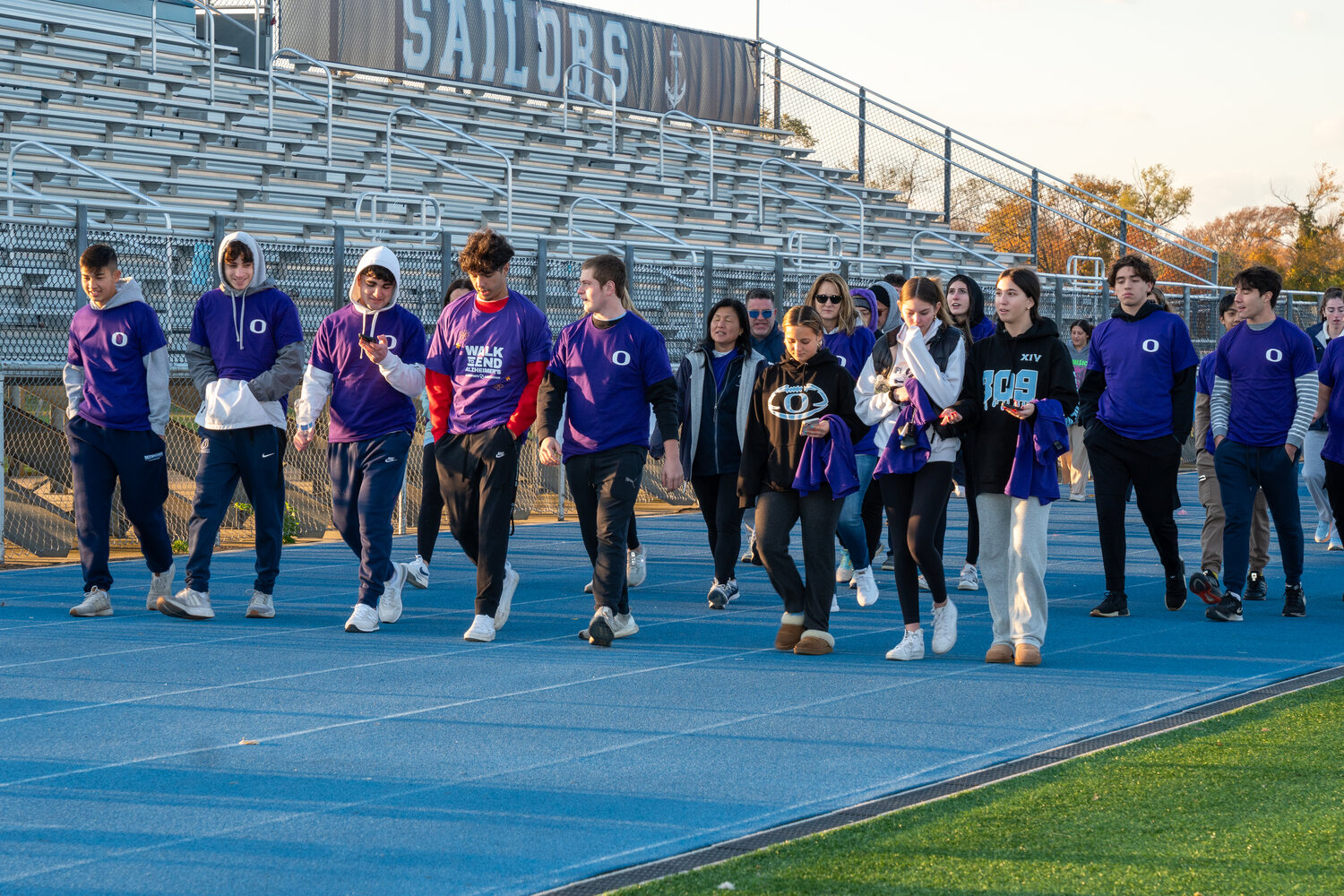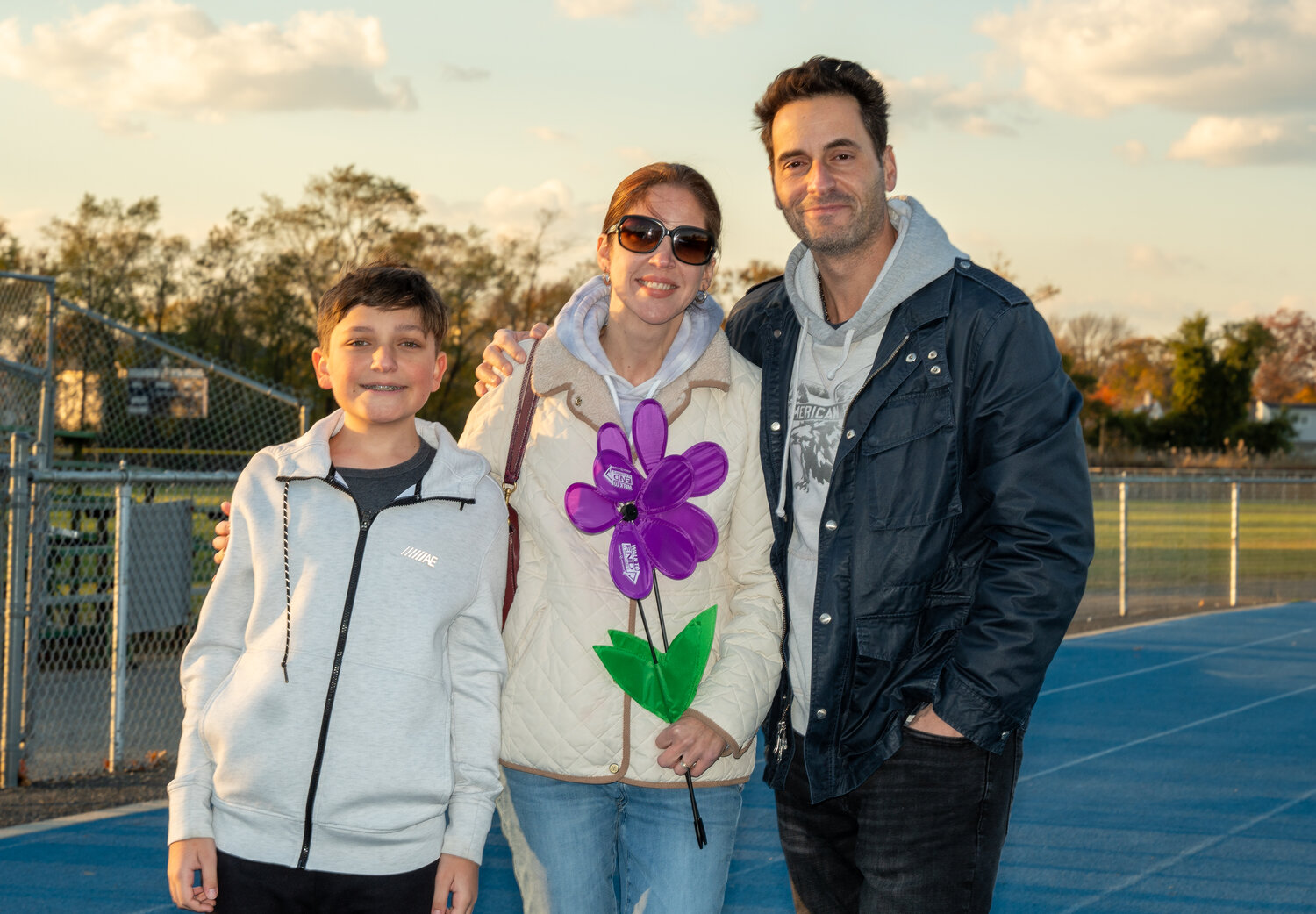High school hosts its first Walk to End Alzheimer’s
Oceanside High School held its first Walk to End Alzheimer’s on Nov. 19, to raise awareness, support and funds for those with Alzheimer’s disease. The high school also invited officials from the Alzheimer’s Association to the walk around the school’s football field, and encouraged students, parents, teachers and community members to take part in a raffle for giveaway prizes.
The initiative, led by Alex Boller, an OHS junior who is president of the Science National Honor Society, was coordinated by several students and school staff. The walk was organized in collaboration with the Alzheimer’s Association, which is headquartered in Chicago, and was intended not only to raise money for Alzheimer’s research, but also to foster understanding and compassion in the community.
“This is the first walk and Alzheimer’s event that I’ve organized, and I feel amazing that people really came out and supported us,” Boller said. “My grandmother passed away from Alzheimer’s when I was in second grade, so I’ve always wanted to do something and help out within the Alzheimer’s Association.”
Alzheimer’s is a progressive neurodegenerative disorder that primarily affects the brain, causing memory loss and changes in thinking and behavior. It is the most common type of dementia, accounting for 60 to 80 percent of dementia cases, according to the association, a nonprofit dedicated to addressing the challenges of those with Alzheimer’s and other forms of dementias by raising funds for research, fostering public awareness and offering support services for affected individuals and families. The association is the largest funder of research aside from the Chinese and American governments.
“Alzheimer’s is a multi-generational disease in my family,” said David Boller, Alex’s father, who took part in the walk. “My grandmother had it, and my mother had early-onset Alzheimer’s at the age of 58. As caretakers, we work day in and day out to keep them comfortable, and keep their integrity intact, and show them that we love them.”
“I’ve gotten close to all of the families that I work with, and those who take part in the Walk to End Alzheimer’s on Long Island,” Tinamarie Hardekopf, director of development for the Alzheimer’s Association’s Long Island chapter, said. “You take every step with them, and it’s sad when you get so close, and you’re so involved in every feeling that they have when trying to help them get through it. We do have a number of high schools across the Island who are holding many walks,” Hardekopf added. “This is one of the more successful walks — we had a great turnout today. You could really see Alex’s efforts, with all of the students that showed up and the support that he had here today. We’re so grateful, and we’re looking forward to this being an annual event here at Oceanside High School.”
The Oceanside community is no stranger to generating awareness of Alzheimer’s. November is Alzheimer’s Awareness Month, and the Friedberg JCC offers free programs aimed at helping caregivers and community members understand the disease.
“We’re certainly grateful that other organizations recognize the importance of this issue,” Gloria Lebeuax, director of social services at the JCC, said. “More and more and more people are being diagnosed with dementia, and not just Alzheimer’s disease, but the whole range of dementia that are out there, so awareness for dementia, (and) money toward research toward a cure, which we haven’t seen, is critical.”
The JCC has an early-stage dementia program three times a week, to which people can bring their loved ones and get some respite, and also immerse them in a safe, fun, supportive environment. The JCC also provides counseling for dementia caregivers. A caregiver drumming program is planned for Dec. 11, for caregivers and their loved ones with dementia.
“Even people with dementia can benefit from and enjoy it,” Lebeuax said. “It really is a wonderful way for caregivers and their loved ones to connect with each other, spend time together and enjoy each other regardless of the diagnosis. Our programs are about understanding the stigma that’s connected with people who have Alzheimer’s disease and highlighting the caregiver’s role and responsibility and how difficult it is, and what Alzheimer’s impact is on the family.”













